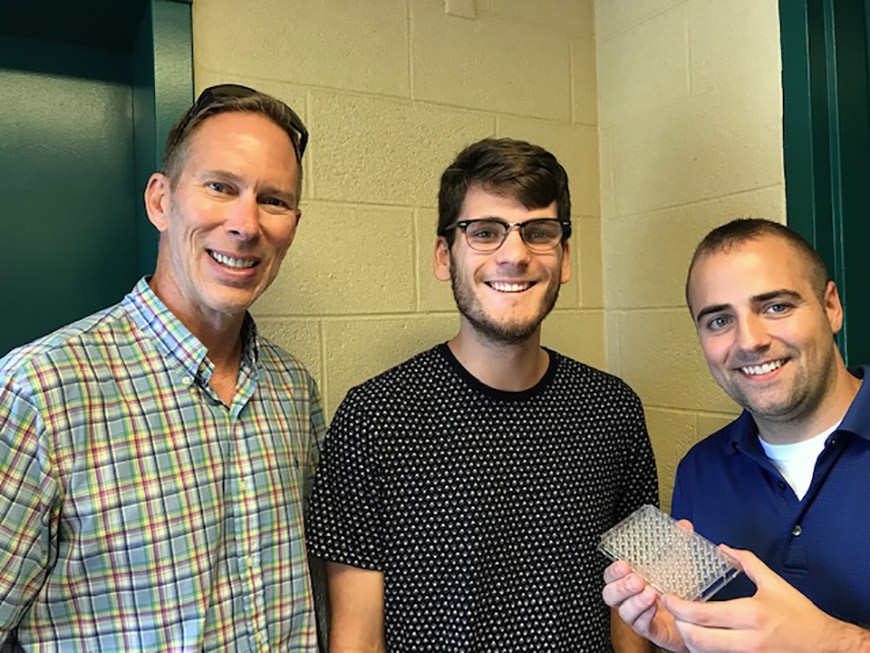NovaCell Partners with Redbud Labs on Improved Bioreactor for T-Cell Therapy

Dr. William Kelly, Villanova PhD student Justin Fisher and Redbud Lab’s Travis Gurney.
In January 2019, NovaCell, Villanova’s Center for Cellular Engineering, partnered with biotech company Redbud Labs on “A Transcriptome-based Model for Improved CAR-T Therapy.” Supported by a $150,000 grant from the National Institute for Innovation in Manufacturing Biopharmaceuticals, the goal of that project was to improve T-cell growth rates.
This summer, Redbud Labs invited Villanova’s participation in a second project funded by the National Institutes of Health. Dr. William Kelly, director of NovaCell and professor of Chemical and Biological Engineering, explains that the ongoing collaboration will focus on improving the bioreactors used to provide controlled delivery of nutrients and biomimetic stimuli in order to influence T-cell growth. The subaward totals $67,000.
“The goal of this project,” says Dr. Kelly, “is to improve the reactor at the microscale so that the same results can be achieved at the process level.” Given the limited number of T-cells available and the expense of the process, improving standardization and reproducibility presents an opportunity to revolutionize CAR-T therapy.
Redbud Labs®, headquartered in Research Triangle Park, North Carolina, manufacturers cartridge-ready™ microfluidic components for life science industry. MXR™, the world’s fastest, most adaptable microfluidic mixing chip, and STR™, the first cartridge-ready sample prep solution, address some of the industry’s toughest microscale fluidic challenges. Redbud technologies have broad application across a variety of segments including basic research, drug discovery and development, biomanufacturing, point-of-care molecular diagnostics, sequencing, and applied markets.
Founded in 2018, NovaCell’s mission is to lead efforts to improve cell and gene therapy products, and the bioprocesses used to make them.
